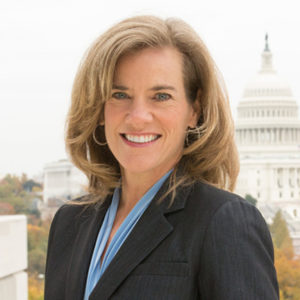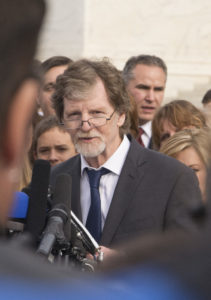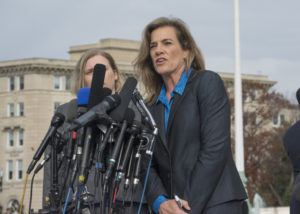FEMA policy change allows disaster aid for churches
WASHINGTON—The Federal Emergency Management Agency changed its policies to allow damaged churches and other houses of worship to receive disaster relief aid.
The revised policies state “private nonprofit houses of worship will not be singled out for disfavored treatment” compared to other not-for-profit applicants. The new policies are retroactive to disasters declared on or after Aug. 23, 2017.
However, some advocates of church/state separation insist the changes give religious groups favored status over other nonprofits and put the government in the untenable position of determining which houses of worship it will help rebuild.
Texas and Florida lawsuits
FEMA revised its policies in light of two lawsuits—one from three Texas churches damaged by Hurricane Harvey and the other from a pair of Florida synagogues affected by Hurricane Irma. The case involving the Texas churches is on appeal, and the Florida synagogues’ case is pending in federal district court in Key West.
The suits challenged a policy that allowed some nonprofit community centers to receive FEMA funds to repair storm-damaged facilities but excluded buildings used for religious activities.
“Better late than never,” said Daniel Blomberg with Becket, the law firm that represented the houses of worship in Texas and Florida. “By finally following the constitution, FEMA is getting rid of second-class status for churches, which, in the words of the Supreme Court, was ‘odious’ to the First Amendment. We will watch carefully to make sure that FEMA’s new policy is implemented to provide equal treatment for churches and synagogues alongside other charities.”
The FEMA policy guide specifies houses of worship are not considered ineligible for assistance “on the basis of the religious character or primarily religious use of the facility.”
The agency particularly cites the U.S. Supreme Court’s ruling in Trinity Lutheran Church v. Comer.
In that 7-2 decision last year, the court ruled Missouri acted improperly when it denied public funds to a Lutheran church that sought assistance from a state program providing grants for playground improvements.
‘Problematic’ policy

Holly Hollman, general counsel for the Baptist Joint Committee for Religious Liberty, asserted the FEMA policy change is “problematic” and not required by the court’s decision in Trinity Lutheran Church v. Comer.
“Our constitutional tradition has long treated churches as a special category to protect their unique status,” Hollman said. “It is not within the government’s authority to build churches, nor should the government have the power to decide which houses of worship get rebuilt after a disaster.”
Maggie Garrett, legislative director of Americans United for Separation of Church and State, sees the FEMA policy change as a violation of the First Amendment.
“The constitution is clear. A fundamental principal of religious liberty is that the government doesn’t build churches, synagogues or other houses of worship,” Garrett said.
The FEMA assistance in question is “a narrow grant program” not available to all nonprofits, she noted.
“The policy changes give special treatment to houses of worship,” she said.
The longstanding principle that government funds should not be used to build churches, synagogues and mosques protects the rights of taxpayers not to fund houses of worship contrary to their convictions, Garrett said.
It also protects houses of worship from the entanglement that accompanies government funds, she added.

